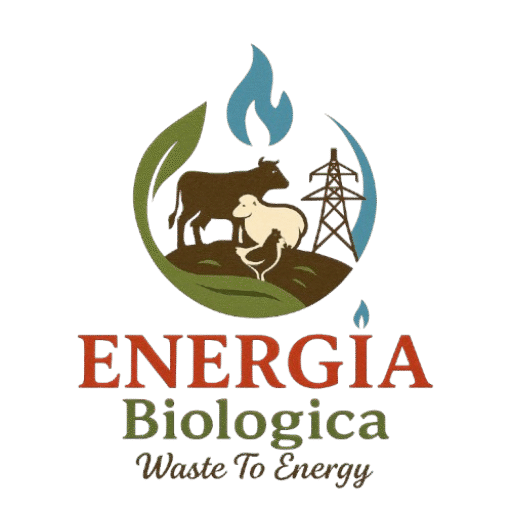Industrial Park Integration: Unlocking Economic Multipliers with Biogas
Nigeria’s pursuit of rapid industrialization and economic diversification faces a persistent hurdle: the availability of consistent, affordable, and sustainable energy. Industrial parks, designed to concentrate manufacturing and production activities, are critical to this agenda. However, these hubs often rely on an unpredictable national grid or expensive, polluting diesel generators, stifling productivity and raising operational costs. Simultaneously, the very industries within these parks generate vast quantities of organic waste, creating disposal challenges and environmental liabilities.
What if these two problems could be solved with a single, innovative solution? This is the core principle behind industrial park integration with biogas technology—a strategic approach that transforms waste into reliable energy, unlocking significant economic multipliers and fostering a truly sustainable industrial ecosystem. Energia Biologica Limited, Nigeria’s pioneering biogas industry facilitator, is at the forefront of this transformative shift. We act as a strategic integrator, bringing together essential finance, technology, construction, and operations partners to develop bankable, impactful biogas initiatives that serve as the energy backbone of these next-generation industrial parks. Our mission is to catalyse sustainable biogas development in Nigeria, driving waste-to-wealth transformation on an industrial scale.
The Symbiotic Model: Waste as a Resource
The concept of integrating biogas plants within or adjacent to industrial parks is a powerful manifestation of the circular economy. It creates a closed-loop system where organic waste from multiple industries within the park becomes the feedstock for centralized biogas production. This model offers unparalleled synergies that benefit all stakeholders.
At its heart, this integration involves:
- Centralized Waste Valorisation: Instead of individual industries managing their diverse organic waste streams (e.g., food scraps, agro-processing residues, abattoir waste) separately, a dedicated biogas plant aggregates these inputs. This allows for economies of scale in waste collection, transportation, and processing. For instance, an industrial park in a state like Ogun, known for its mix of light manufacturing and agro processing, can pool waste from several factories into one efficient biogas facility.
- On-Demand, Reliable Energy Supply: The biogas generated from this aggregated waste is then converted into electricity and/or thermal energy (heat) using state-of-the-art combined heat and power (CHP) systems. This clean energy is fed directly into the park’s microgrid, providing a stable, predictable, and decentralized power source that mitigates the impacts of grid instability and reduces reliance on costly fossil fuels.
- Nutrient Recycling: The digestate, the nutrient-rich byproduct of the anaerobic digestion process, can be utilized by agricultural businesses within or near the park. This organic fertilizer improves soil health, reduces the need for synthetic chemical fertilizers, and supports the broader agricultural value chain, further closing the loop of resource utilization.
This integrated model transforms industrial parks into self-sufficient, resilient, and environmentally responsible economic zones, embodying the very essence of sustainable energy solutions for industry.
Industries That Thrive on Biogas Integration
A diverse range of industries within Nigeria stands to gain immensely from co-locating with biogas plants, particularly those with significant organic waste streams and high energy demands:
- Food Processing Industries: Nigeria’s burgeoning food processing sector, encompassing everything from cassava processing plants in states like Edo and Delta, to breweries in Lagos and Kaduna, and fruit juice production facilities, generates enormous quantities of biodegradable waste (e.g., fruit peels, pomace, spent grains, wastewater with high organic content). This waste is an ideal feedstock for biogas. By using biogas, food processors can significantly reduce their waste disposal costs, ensure a consistent, affordable power supply for their operations (e.g., refrigeration, cooking, sterilization), and enhance their sustainability credentials.
- Textile and Garment Industries: While not immediately obvious, certain segments of the textile industry, particularly those involved in natural fibre processing or dyeing, can generate organic-rich wastewater or fibre waste that can be co-digested in biogas plants. The textile industry is often energy and water intensive. Leveraging biogas can provide cost-effective heating for dyeing processes or electricity for machinery, reducing operational overheads and their environmental footprint. This is especially relevant in traditional textile hubs that are seeking modernization.
- Agro-Processing Industries: Beyond food processing, agro-processing facilities—such as palm oil mills, rice mills, and sugar refineries—produce substantial residues like Palm Oil Mill Effluent (POME), rice husks, and bagasse. These are exceptionally potent feedstocks for biogas production. Integrated industrial parks specializing in agro processing can achieve significant energy self-sufficiency by converting these high-volume wastes into power for their machinery, driers, and other thermal needs, while also generating organic fertilizer for surrounding farmlands.
- Abattoirs and Livestock Processing: Large abattoirs and meat processing facilities, common in states like Kano, Oyo, and Adamawa, generate significant quantities of highly organic waste, including paunch contents, blood, and condemned carcasses. These are excellent biogas feedstocks. Co-locating these facilities within an industrial park with a biogas plant solves critical waste disposal challenges, improves sanitation, and provides a direct, renewable energy source for their operations.
- Light Manufacturing and Other Industries: Any industrial cluster with diverse tenants that collectively generate a consistent stream of organic waste can benefit. The stable power supply from biogas can support various light manufacturing operations, reducing their reliance on expensive grid or generator power. The economic advantages of consistent, cheaper energy can attract a broader range of industries to these parks.
Unlocking Economic Multipliers and Investment Potential
The value proposition of integrated industrial parks powered by biogas for developers, operators, and potential tenants is compelling, creating a ripple effect of economic benefits:
- Attracting and Retaining Tenants: The promise of a reliable, affordable, and green energy supply is a powerful incentive for businesses to locate within these parks. In a country where energy costs are a major concern, this competitive advantage can significantly increase occupancy rates and tenant satisfaction.
- Reduced Operating Costs: For industries, transitioning from diesel generators or an unstable grid to biogas-powered electricity and heat translates into substantial cost savings. This enhances profitability, making businesses more competitive in both domestic and international markets. Imagine a food processor saving millions of Naira annually on energy, directly impacting their bottom line.
- Enhanced Sustainability and Brand Image: Operating within a biogas-powered industrial park allows companies to significantly reduce their carbon footprint and demonstrate strong corporate social responsibility. This is increasingly important for attracting environmentally conscious investors, consumers, and talent.
- Job Creation: The development and operation of biogas plants create direct employment opportunities (engineers, technicians, operators, feedstock collectors). Moreover, the increased efficiency and competitiveness of industries within the park lead to indirect job creation and expansion of their workforce. Experts suggest that well-planned industrial parks can generate hundreds of thousands of direct and indirect jobs, and integrating biogas further enhances this potential.
- Local Value Addition: By processing local waste into energy and fertilizer, these parks foster local value addition, stimulating backward and forward linkages within the economy. This localized energy production reduces the need for imported fuels, contributing to foreign exchange savings for the nation and bolstering energy independence Nigeria.
Energia Biologica: Your Partner for Sustainable Industrial Growth
Realizing the full potential of integrated industrial park development biogas Nigeria requires a holistic, expert-driven approach. Energia Biologica Limited is uniquely positioned to facilitate this transformation. Our role as a strategic integrator is to bridge the gaps between complex technical requirements, intricate financial structuring, and robust project execution.
We work together with industrial park developers, government agencies, and industry stakeholders to:
- Conduct Feasibility Studies: Identify the most suitable locations based on waste availability, energy demand, and logistical considerations.
- Engineer Bespoke Solutions: Design and implement cutting-edge biogas technology solutions tailored to the specific waste profiles and energy needs of the industrial park.
- Mobilize Financing: Connect projects with local and international investors, green funds, and other financial instruments to ensure project bankability.
- Oversee Project Delivery: Manage the entire project lifecycle from conception to commissioning, ensuring timely and efficient execution.
- Ensure Sustainable Operations: Provide expertise for long-term operation, maintenance, and optimization of biogas facilities.
By partnering with Energia Biologica, industrial park developers and operators can confidently embark on this journey towards creating highly attractive, economically vibrant, and environmentally responsible industrial hubs that drive Nigeria’s future prosperity.
The Future is Integrated, The Future is Biogas
The integration of biogas technology within industrial parks represents a paradigm shift for Nigeria’s industrial development. It transforms liabilities into assets, addresses critical energy deficits, and fosters a sustainable, circular economy. For industrial park developers and businesses alike, this is not just an environmental imperative but a compelling economic opportunity.
The time to unlock these economic multipliers is now. Nigeria’s abundant organic waste, coupled with its drive for industrial growth, creates the perfect environment for these smart hubs to flourish.
Partner with Energia Biologica to access reliable, locally-generated clean energy for your industrial operations.
Join us in building the resilient, green industrial future of Nigeria.

